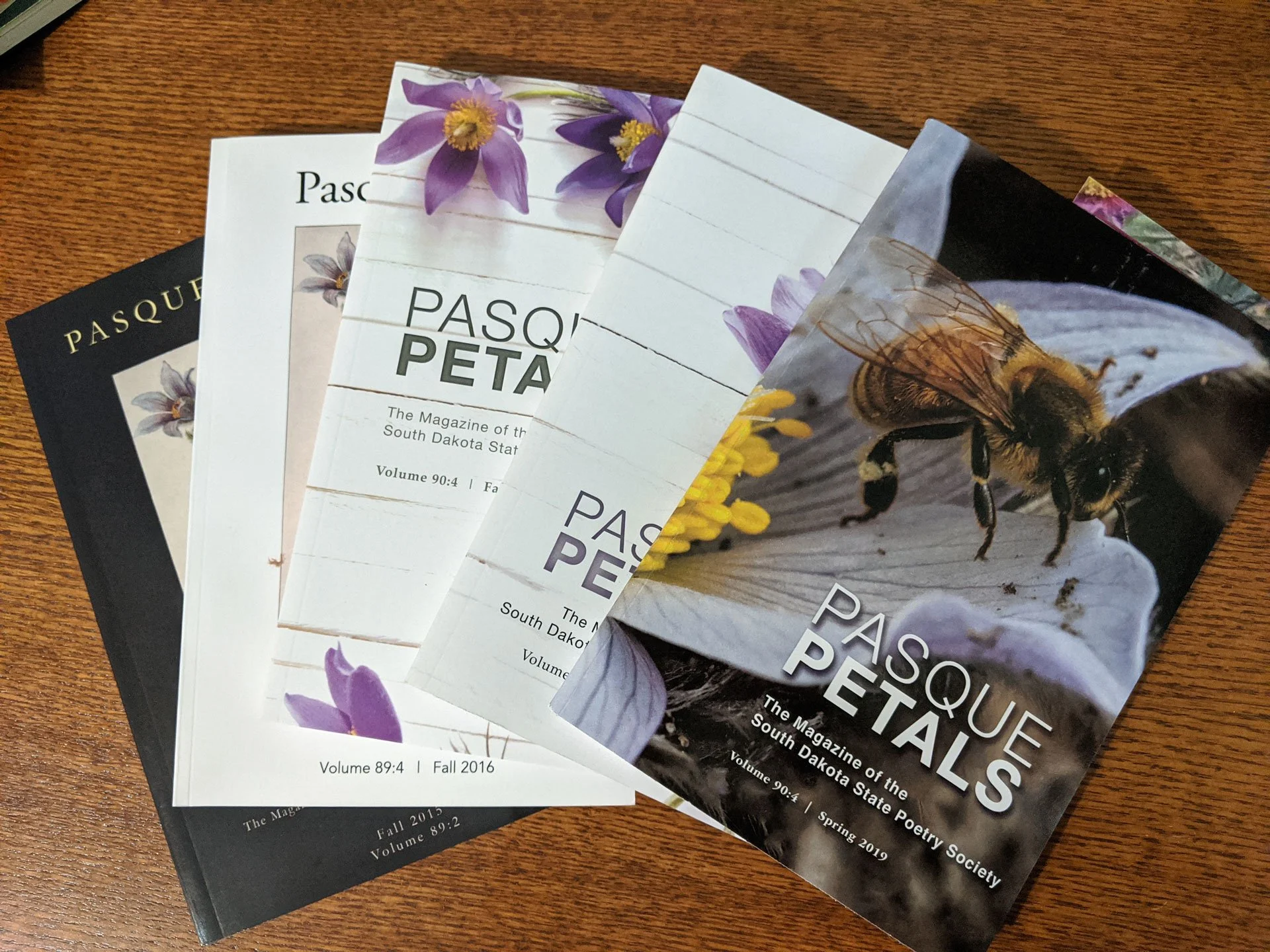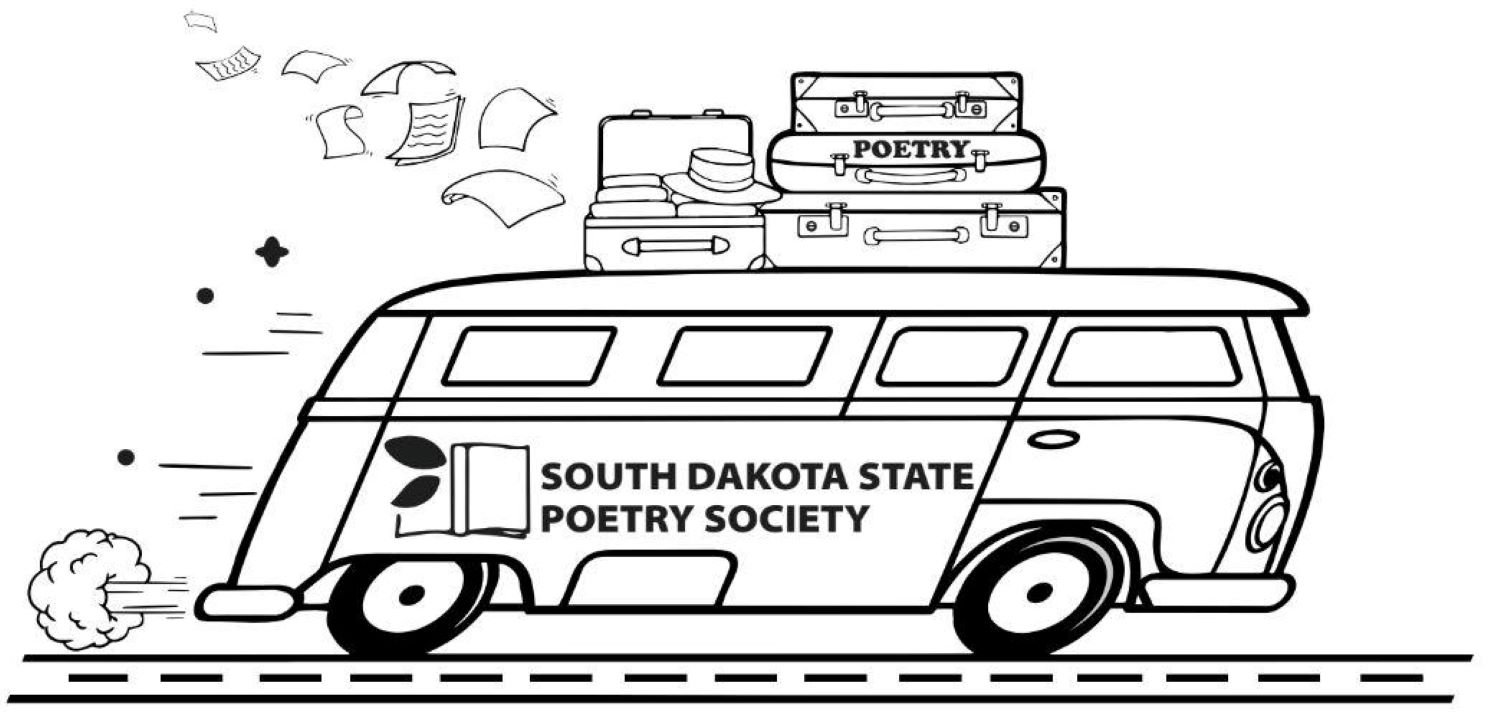
Inspiring poetry for everyone
Join us to encourage poetry writing and reading in South Dakota.
Your annual membership includes:
Mailed copies of spring and fall issues of Pasque Petals, our official poetry journal
Mailed copy of the contest-winning chapbook
Reduced/no fees to submit poetry to Pasque Petals, annual contests, and chapbook competition
Eligibility to apply for a mini-grant
Ability to submit nominations for the Poet of Merit award
Potential to contribute to website content (blog, promote events/publications)
Listing on the member showcase page on our website
Membership in the National Federation of State Poetry Societies, including discounted rates for contests
Our Mission
Organized in 1927 and incorporated as a non-profit in 1970, our mission is to encourage and foster the writing and publication of poetry by South Dakota writers.
Poetry on the Road
Join South Dakota’s State Poet Laureate, Bruce Roseland, along with other member poets and special guests, as we visit towns across South Dakota throughout 2024 and 2025. We’ll give readings and host open mics at each event where you can sign up to read your own original poems!
Publications
Submit your poetry for publication. Get copies of our poetry anthologies, twice-yearly journal, full-length poetry collections, and winning chapbooks in our store.
“Fabulous! More than 20 poets! So many and such diverse voices! Poetry has such power to bring South Dakotans together!”
— participant, Poetry on the Road
What’s Happening?
Make a Donation
By contributing, you're not just supporting a non-profit – you're investing in poetry and the overall cultural growth of South Dakota.
Donate today and help us keep South Dakota’s poetic voice strong.







